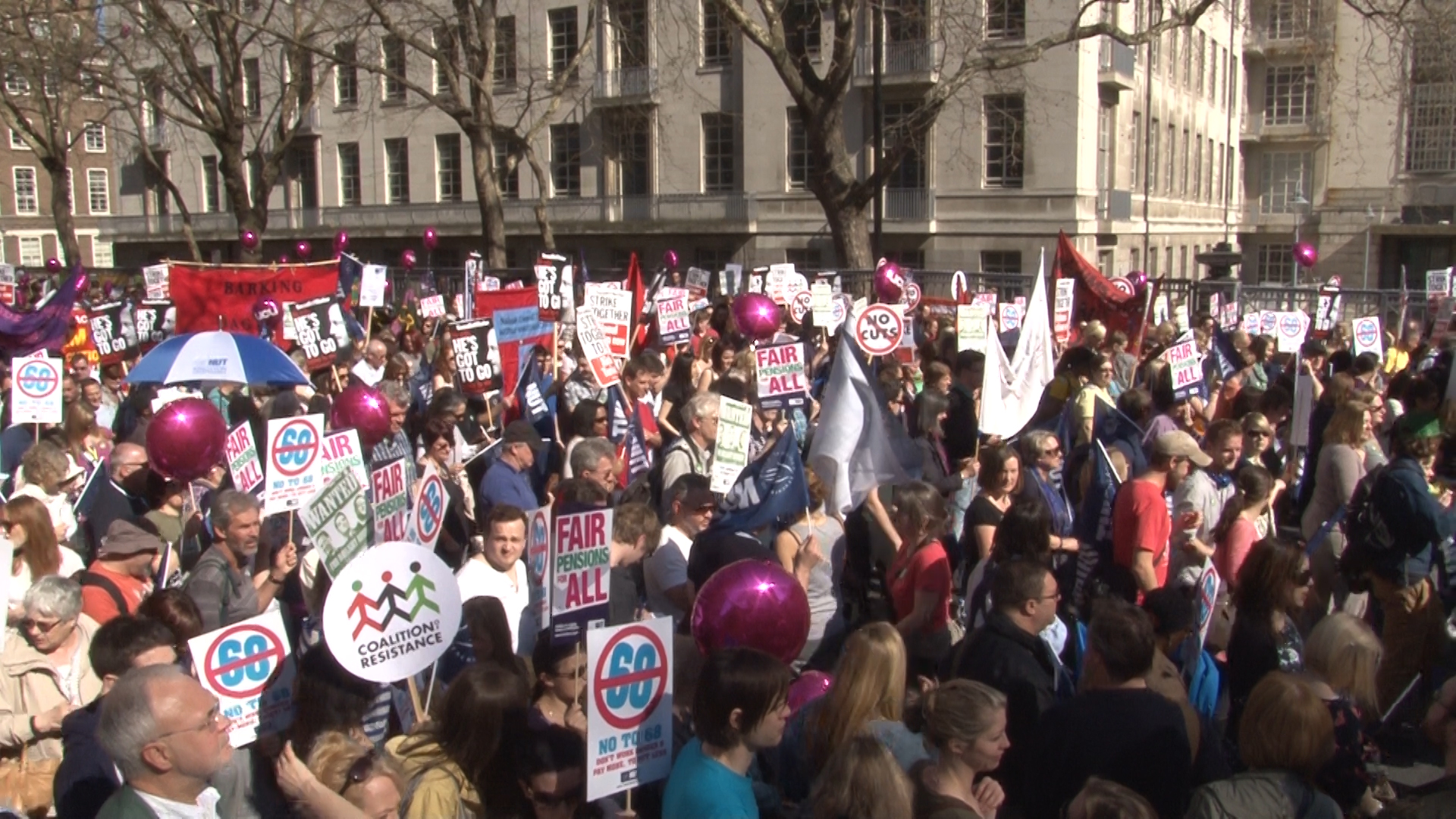Last week’s issue of the Socialist carried an explanation of why the PCS civil service union had decided not to call action on 28 March. This was a direct consequence of the teachers’ union NUT decision not to call national action on that day but instead to call a strike across London. This was in spite of Martin Powell-Davies, a Socialist Party member, arguing at the NUT national executive for national action on 28 March.
The following is an extract from the Socialist Party leaflet distributed to striking teachers on 28 March, which explains how the pensions battle can go forward.
After the massive show of trade union strength and unity on 30 November, this government could not have believed its luck when, just a few weeks later, the leaders of unions like ATL and Unison shamefully retreated and accepted the unacceptable terms of the ‘Heads of Agreement’ pensions offer, which would still mean paying more, working longer and getting less.
Weakness has only invited further attacks. While giving even more handouts to the wealthy top 1%, Osborne announced in the Budget that pension ages will be rising even faster. A teacher in their 30s would not now have to work until 68 to get their full pension – but maybe to 70!
Faced with these attacks, union leaders can’t afford to hesitate. Unions need to be fighting just as hard for their members, and for the millions that rely on schools and services, as the Con-Dems are for the millionaires.
While others ran for cover, unions including the NUT, UCU and PCS stood firm and regrouped, preparing their members for further national action on 28 March. But even the NUT leadership hesitated at the last minute and opted for a strike only across the London region.
Next phase
28 March must be the start of the next phase of the campaign, not the end. But isolated regional action can’t put the government under pressure in the same way that united national strike action can.
NUT members in London, and across the country, have been asking why only London members were asked to strike. The fact is that, under pressure, and left isolated by others holding back from action like the NASUWT, a majority on the NUT executive lost faith that members would take more action. It has been left to the London NUT membership, and the hard work of local officers and school reps, to show that, given a lead, teachers will stand together.
But now how do we build from here? Delegates at the NUT annual conference over Easter have the responsibility to decide on the next stage of the campaign. The NUT executive agreed a flexible formula of “bringing all other regions and Wales, in turn or together, into pensions action”. But no dates have yet been set for calling out other regions on strike.
If NUT conference votes to support regional action, then a clear and speedy calendar of rolling strikes needs to be announced so that the government, and trade unionists, know we are serious.
But Socialist Party Teachers believes that it would be better to call out everyone together in a national strike, supported by other unions. United national action is our most effective weapon. National strikes are also far easier to coordinate with other fighting unions, like the PCS, than regional activities.
Socialist Party Teachers believes we should consider a two-day strike to escalate pressure on ministers. 28 March has taught ministers that trade unionists will fight their cuts. It’s also taught trade unionists that they need to elect fighting trade union leaderships.










